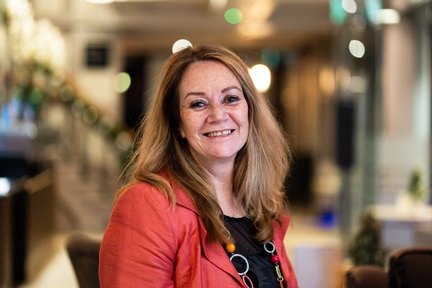Childcare costs rise five per cent while government funding fails to keep up
Parents are paying five per cent more for childcare than a year ago, an average of £131.61 per week or £6,800 a year for a part-time nursery place for two-year-olds, according to a new report.

Coram Family and Childcare’s 20th annual childcare survey finds that parents have been hit by childcare costs rising well ahead of inflation, according to the country’s most comprehensive annual survey of childcare costs.
’There are seven different types of childcare support’ but ‘parents find it difficult just to find out what’s available to them’
The report highlights that whilst most families can get some support with their childcare costs through cost subsidies or free entitlements, the system is too complicated. In England alone, there are seven different ways that families can get support with their childcare costs, each with different eligibility criteria, which can leave parents at risk of missing out on the support they are entitled to.
Claire Harding, head of Coram Family and Childcare, said: “Good childcare is essential: it enables parents to work and boosts children’s learning. But for far too many families in the UK, it just isn’t working. Recent government investment is welcome, but many families still face crippling costs, especially in the period from the end of parental leave to when a child turns three.
"There are seven different types of childcare support depending on families’ individual circumstances, and many parents find it difficult just to find out what’s available to them."
She is calling on the government "to reform and simplify the childcare system, so every parent is better off working after paying for childcare, and every child has access to childcare which supports their learning and development".
The government ‘is actually making things worse for many families across the country’
Even where parents can afford childcare, many will struggle to find it, with availability little improved on last year. In England, 56 per cent of local authorities have enough childcare for parents working full-time, compared to 57 per cent in 2019.
![]() Neil Leitch. Credit: Early Years Alliance
Neil Leitch. Credit: Early Years Alliance
The survey also reveals parents face a postcode lottery with childcare prices and availability varying significantly across the country. The most expensive regions in the UK are London and the South East, where the cost of a part-time nursery place for a child under two is £165.47 and £144.90 per week respectively, compared to the least expensive regions - £116.25 in the West Midlands and £113.76 in Yorkshire and Humberside.
Neil Leitch, chief executive of the Early Years Alliance, said: "The government says that it wants to support parents with the cost of childcare but as this report shows, by refusing to invest what's needed into the early years sector, it is actually making things worse for many families across the country.
"The fact is that childcare costs for under-twos are rising above the rate of inflation because childcare funding for so-called 'free entitlement' schemes isn't increasing anywhere near it."
He added: "Every year, the cost of delivering childcare places gets more and more expensive, and yet government funding has consistently failed to keep up. In April, nurseries, pre-schools and childminders across England will see their staffing costs increase hugely as a result of national living and minimum wages rises of more than six per cent - but the biggest increase in funding any provider is likely to see is two per cent and that's on the back of years of stagnant funding."
'High quality early education cannot be done on the cheap'
Purnima Tanuku, chief executive of National Day Nurseries Association, claims the rising fees for parents reflect the rising costs childcare providers face.
She said: "Nursery businesses are facing above-inflation cost increases mainly due to the minimum and living wage rises in the region of 6 per cent from April. On top of that, nurseries face other cost increases such as business rates.
“High quality early education positively impacts on a child’s development and therefore their lifelong education and opportunities - it cannot be done on the cheap. Nurseries deliver this excellent care and education with 97 per cent of them rated good or outstanding by Ofsted. This is why it’s so important that the Government gets its funding policy right.
"Our Childcare Passport proposal - placing all funding streams in an online account for each child - would address issues of complexity in the system, whether funded hours, Universal Credit or Tax Free Childcare. It would ensure that more of the funding for children reaches those delivering their early education and care."
The Childcare Survey 2020 sets out actions that Scottish, Welsh and UK governments can take to help parents find affordable childcare:
• Reform Universal Credit so it doesn’t lock parents out of work: increasing the maximum amount of childcare costs paid under Universal Credit and moving to upfront payments for childcare.
• Regularly review the funding rate for free early years entitlements to make sure that they meet the cost of delivering high-quality childcare.
• Extend the 30 hours free childcare for three and four-year-olds in England and Wales to families where parents are in training, to help parents get better jobs.
• Double the early years pupil premium, to boost outcomes for the most disadvantaged children.
• Reallocate any underspend against the budget for tax-free childcare to other parts of the childcare system – and focus this on the most disadvantaged children.
Coram's annual survey is based on data from 175 local authorities collected between November 2019 and January 2020.
To see the report go to https://www.familyandchildcaretrust.org/childcare-survey-2020
click here for more details or to contact Early Years Alliance
Latest News
 24-Apr-24
Find out the top nurseries in 2024
24-Apr-24
Find out the top nurseries in 2024
 06-Jun-23
UK's top nurseries in 2023 revealed
06-Jun-23
UK's top nurseries in 2023 revealed
 16-Dec-22
Winter Wonderland: Ice sculptures, aerial acrobatics and white knuckle rides
16-Dec-22
Winter Wonderland: Ice sculptures, aerial acrobatics and white knuckle rides
 28-Nov-22
5 mins with Caroline Wright, early childhood director at Bright Horizons
28-Nov-22
5 mins with Caroline Wright, early childhood director at Bright Horizons
 25-Nov-22
Camilla gives nursery children Paddington bears left as tribute to Queen Elizabeth II
25-Nov-22
Camilla gives nursery children Paddington bears left as tribute to Queen Elizabeth II